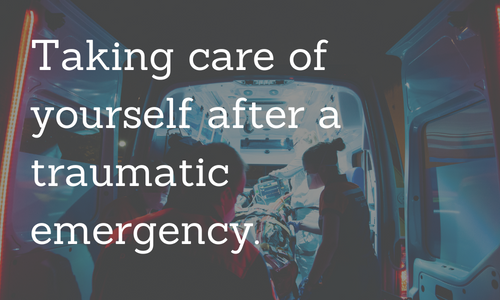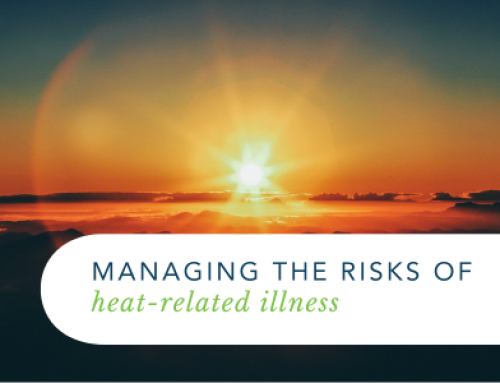Experiencing a traumatic event can have a significant impact on your mental health. Trauma can cause a wide range of emotional and psychological responses, such as anxiety, depression, flashbacks, and more. It is crucial to take care of your mental health after experiencing a traumatic event, as neglecting it can lead to long-term consequences. In today’s blog we will discuss some essential steps to take care of your mental health after an emergency.
1. Seek Professional Help
Trauma can have a profound impact on your mental health, and it is essential to seek professional help. A mental health professional can help you process the trauma and develop coping mechanisms. They can also diagnose and treat any mental health conditions that may arise from the trauma, such as post-traumatic stress disorder (PTSD). It is essential to find a mental health professional who has experience treating trauma, as they can provide specialized care.
2. Create a Support System
A support system can provide emotional and practical support during your recovery from trauma. Your support system can include family, friends, or a support group. They can provide a listening ear, offer advice and encouragement, and help you navigate any challenges that arise. If you don’t have a support system, consider joining a support group for trauma survivors or seeking out therapy groups. These groups can provide a safe and supportive space to share your experiences and receive support from others who understand what you are going through.
3. Practice Self-Care
Self-care is an essential aspect of mental health, particularly after experiencing trauma. Practicing self-care can help reduce stress, improve your mood, and promote overall well-being. Self-care activities can include exercise, meditation, spending time in nature, reading, or any other activity that helps you relax and feel good. It is also important to prioritize getting enough sleep, eating a healthy diet, and avoiding substances that can be detrimental to your mental health, such as alcohol or drugs.
4. Allow Yourself to Feel
It is common to want to suppress or avoid feelings associated with trauma, but this can lead to long-term consequences. It is important to allow yourself to feel a full range of emotions, including sadness, anger, and fear. By acknowledging and processing these emotions, you can move towards healing and recovery. This can be done through journaling, talking to a trusted friend or family member, or seeking therapy.
5. Set Boundaries
Trauma can be overwhelming, and it is important to set boundaries to prevent further distress. Setting boundaries can involve saying “no” to certain activities or people that may trigger negative feelings. It can also involve setting aside time for yourself to practice self-care or engaging in activities that bring you joy. Setting boundaries can help you feel more in control and reduce stress and anxiety.
6. Practice Mindfulness
Mindfulness is a practice that involves being present and aware of your thoughts, feelings, and surroundings. Practicing mindfulness can help reduce stress and improve your overall well-being. Mindfulness can be practiced through meditation, deep breathing, or other relaxation techniques. It is important to find a mindfulness practice that works for you and incorporate it into your daily routine.
7. Practice Gratitude
Practicing gratitude can help shift your focus towards positive emotions and experiences. It involves acknowledging the good things in your life and expressing gratitude for them. Gratitude can be practiced by keeping a gratitude journal or expressing gratitude to others. Practicing gratitude can help improve your mood and promote overall well-being.
In conclusion, taking care of your mental health after experiencing a traumatic event is crucial for long-term recovery. Seeking professional help, creating a support system, practicing self-care, allowing yourself to feel, setting boundaries, practicing mindfulness, and practicing gratitude are all essential steps in this process. It is important to remember that healing takes time and to allow yourself to feel throughout this process.
Do you need help implementing strategies to assist your workers after an emergency arises? If so, the experienced consultants at Workplace Emergency Management would be happy to assist in all your emergency planning needs. Contact one of our friendly customer service representatives today at 1300 831 694 to see what we can do to meet your workplace health and safety needs.
GET IN TOUCH
Are you ready for peace of mind that your workforce is as safe and prepared as possible?
With a dedicated team of staff ready to help you meet compliance requirements and improve the overall safety of your workplace, all you need to do is get in touch.
Request your free audit today!



